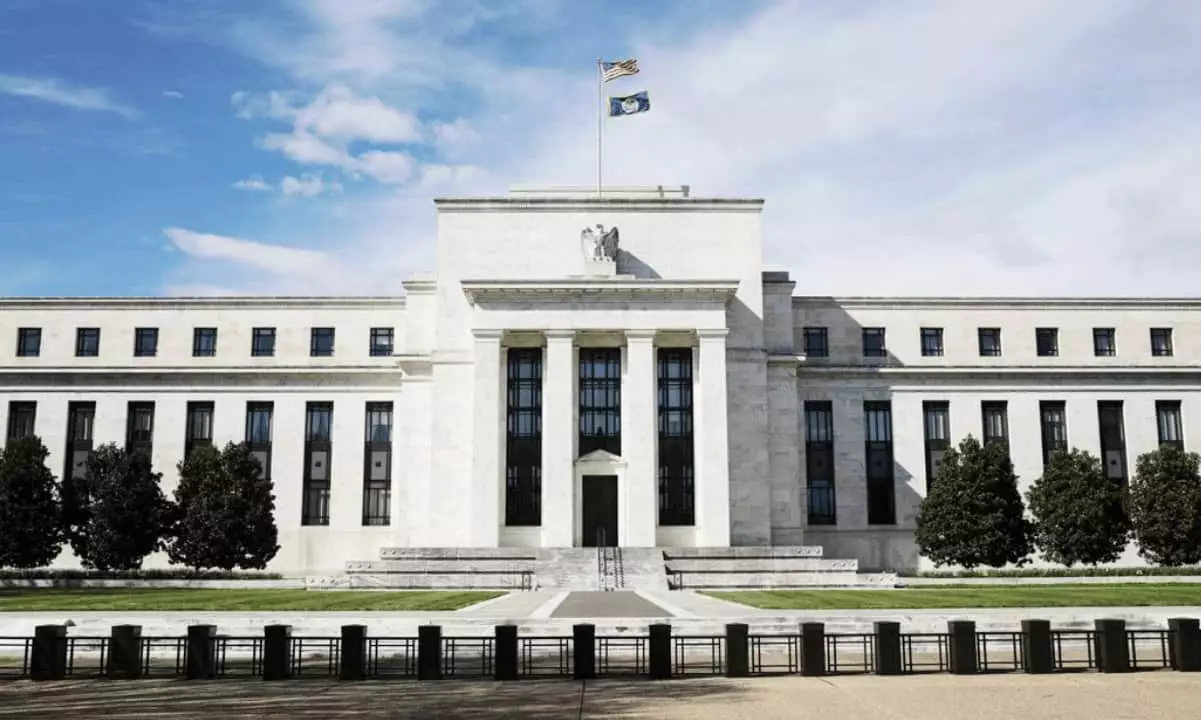The recent resignation announcement by Michael Barr, U.S. Federal Reserve Vice-Chair for Supervision, has brought to light significant discussions around banking regulations and the evolving landscape of digital currencies. Barr’s decision to step down, as President-elect Donald Trump is poised to reclaim the White House, is more than just a personnel change; it marks a pivotal moment in U.S. financial policy, especially regarding the interplay between traditional banking practices and the burgeoning cryptocurrency sector.
Barr, who has held the position since July 2022, has been a controversial figure in the context of regulatory oversight for crypto assets. His departure from the Vice Chair role isn’t without its ramifications. While he will remain on the Federal Reserve Board of Governors, his resignation from the supervisory position is seen by many as a sign of potentially shifting policies that align more closely with the incoming administration’s perspectives on digital currencies.
Since its establishment in the aftermath of the 2008 financial crisis, the position of Vice Chair for Supervision has aimed to enhance transparency and accountability in the regulation of U.S. banks. However, Barr’s tenure has been characterized by what many perceive as a confrontational stance towards cryptocurrency. His assertion that allowing banks to hold crypto-assets directly on their balance sheets would be “unsafe and unsound” has drawn ire from within the crypto industry. Critics argue that such statements have stymied innovation and limited the engagement of American financial institutions in digital asset markets, leading to apprehensive interactions rather than collaborative relationships.
Recent disclosures from the Federal Deposit Insurance Corporation (FDIC) further illustrate the rift between traditional banking oversight and the aspirations of the crypto market. Documents revealing coordinated attempts to impede banks’ participation in crypto-related activities, including Bitcoin transactions and custody services, shed light on institutional resistance against modern financial trends. These actions feed into a narrative that positions regulators as impediments to progress in the rapidly changing digital currency landscape.
Responses from Lawmakers and Industry Leaders
Lawmakers have voiced their concerns regarding Barr’s regulatory approach. Iowa Congressman Zach Nunn, during a recent hearing, challenged Barr’s policies, stating that they had fostered a restrictive environment detrimental to innovation in the cryptocurrency space. He articulated a growing frustration among legislators who recognize the potential of digital assets for the economy but feel constrained by the regulatory frameworks imposed by figures like Barr.
In addition, influential industry voices have targeted Barr, claiming that his oversight has created an unfriendly environment for the United States to thrive as a leader in digital innovation. Wyoming Senator Cynthia Lummis, an advocate of crypto, accused Barr of unlawfully consolidating power to the detriment of Wyoming’s growing digital asset industry. Her critique underscores a significant concern that regulatory frameworks established during Barr’s term may have lasting impacts that stifle innovation in an increasingly competitive global marketplace for crypto.
As Barr steps aside, many in the financial and cryptocurrency sectors are speculating about the potential for change in U.S. banking policies. President-elect Trump’s incoming administration has already suggested a more welcoming approach toward digital currencies, promising to reshape the regulatory environment in a bid to position the U.S. as a leader in the developing financial technology arena.
The implications of this transition are substantial. With Barr’s departure, there is an opportunity for a shift towards policies that could nurture innovation and position U.S. financial institutions favorably within the global cryptocurrency market. This potential change could revitalize investment in digital assets and signal a departure from the restrictive measures that have characterized Barr’s tenure.
Michael Barr’s resignation carries with it an array of implications for the future of cryptocurrency regulation in the United States. The challenge moving forward will lie in balancing consumer protection, financial stability, and the burgeoning potential of digital assets. As regulatory dynamics evolve with the appointment of new leaders, stakeholders across the financial spectrum are keenly watching, hopeful for an environment conducive to development, collaboration, and innovation. The departure of an influential yet polarizing figure like Barr opens the door to new possibilities in the intersection of traditional banking and the future of finance.














